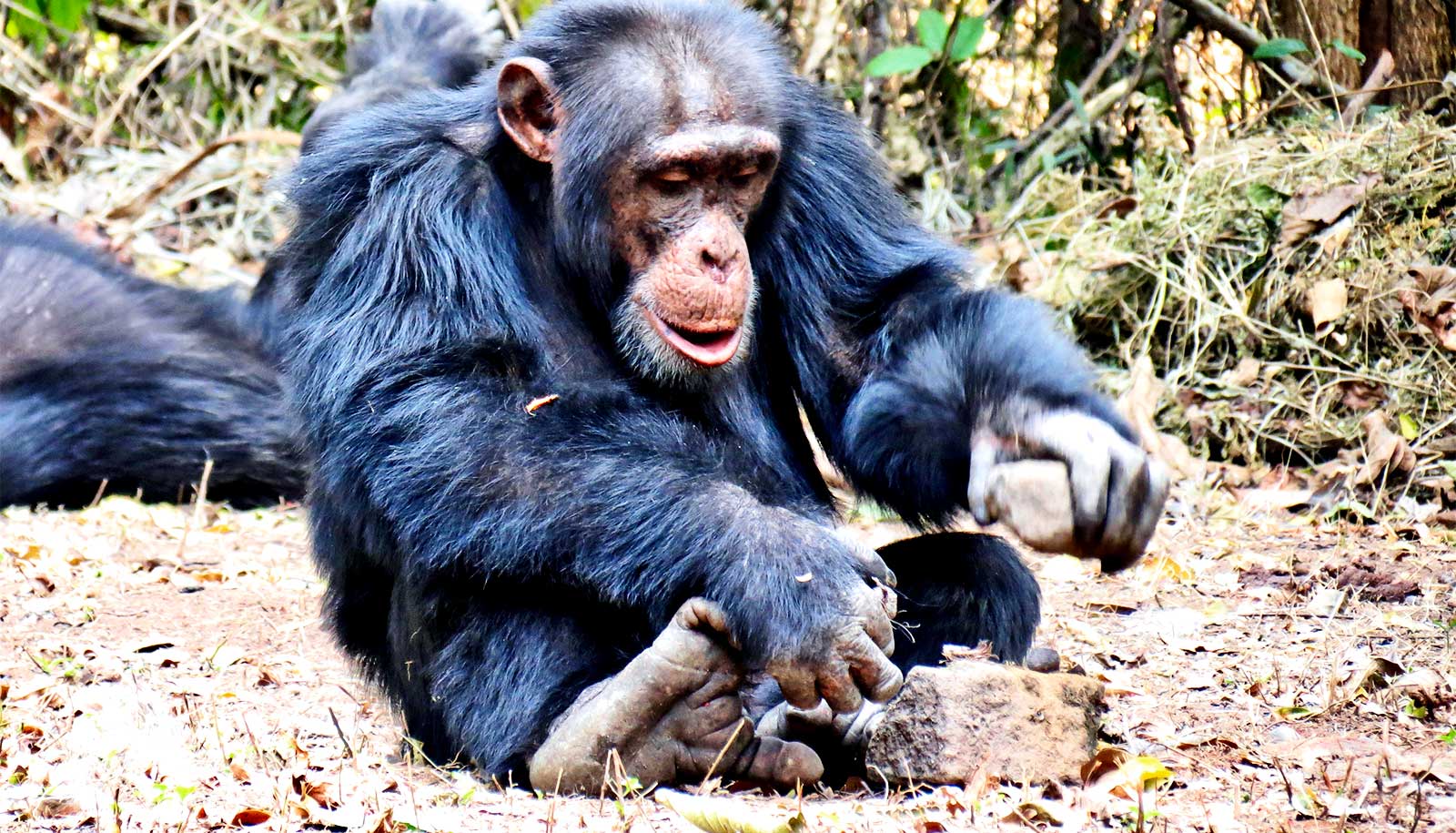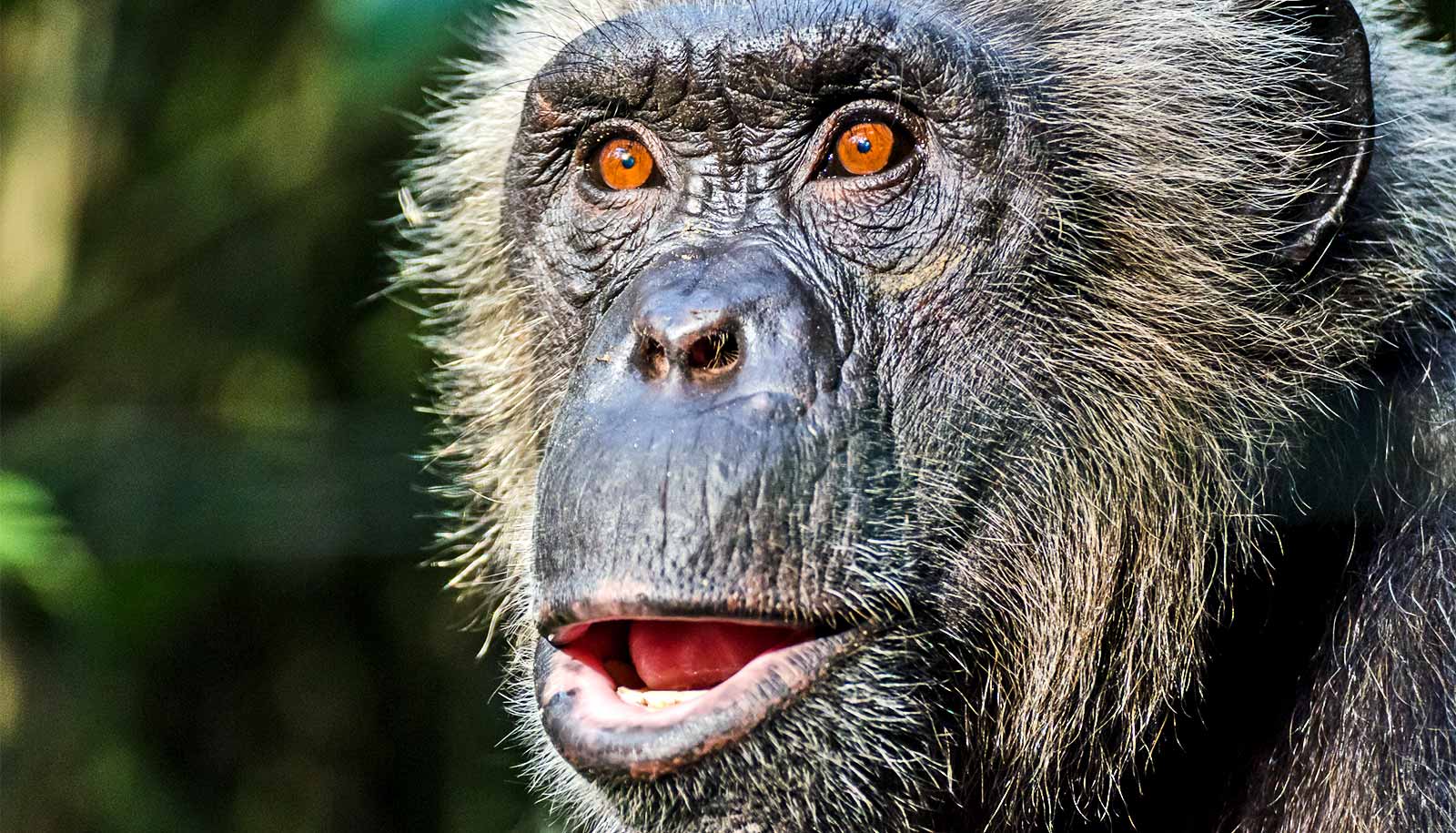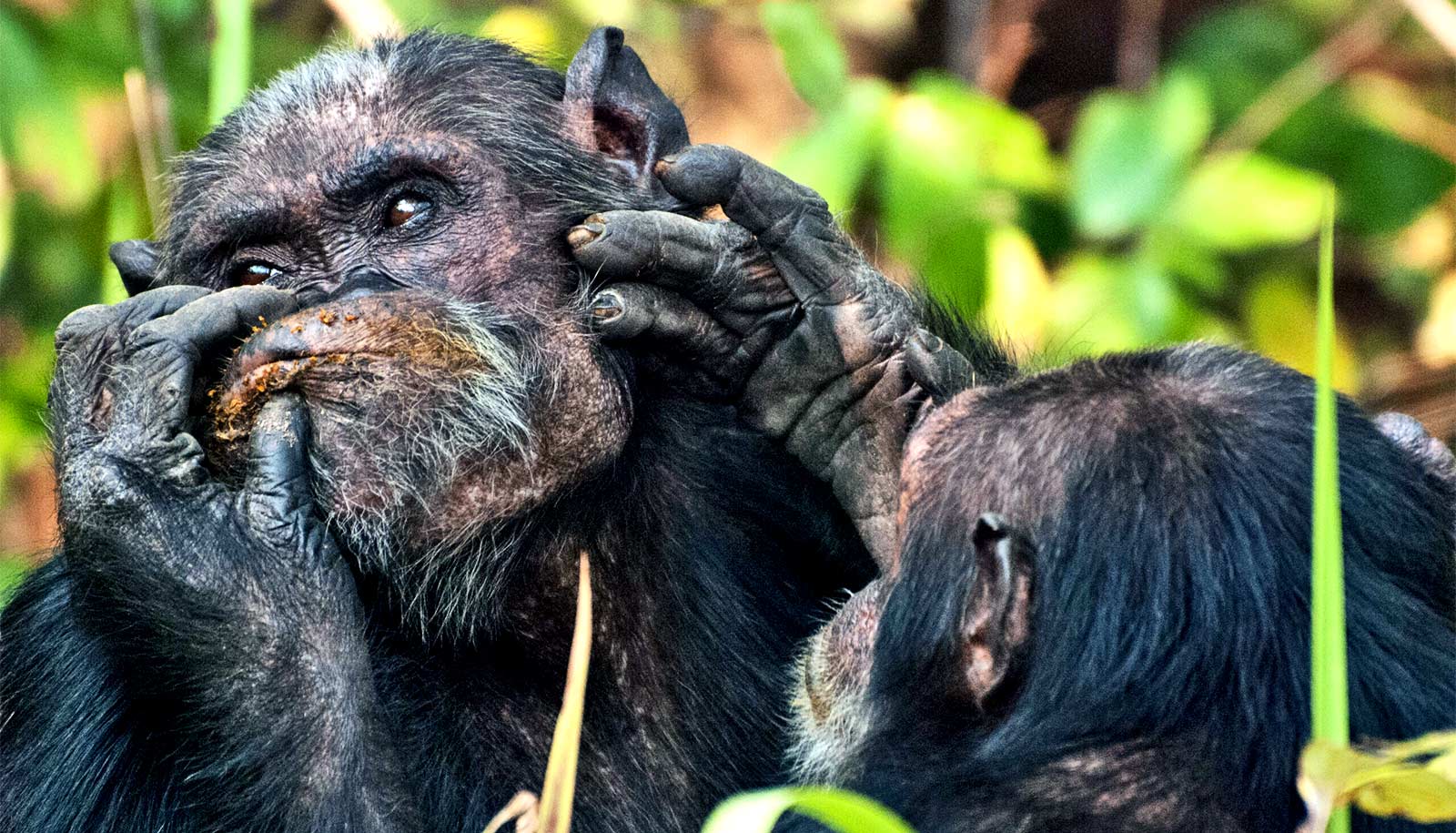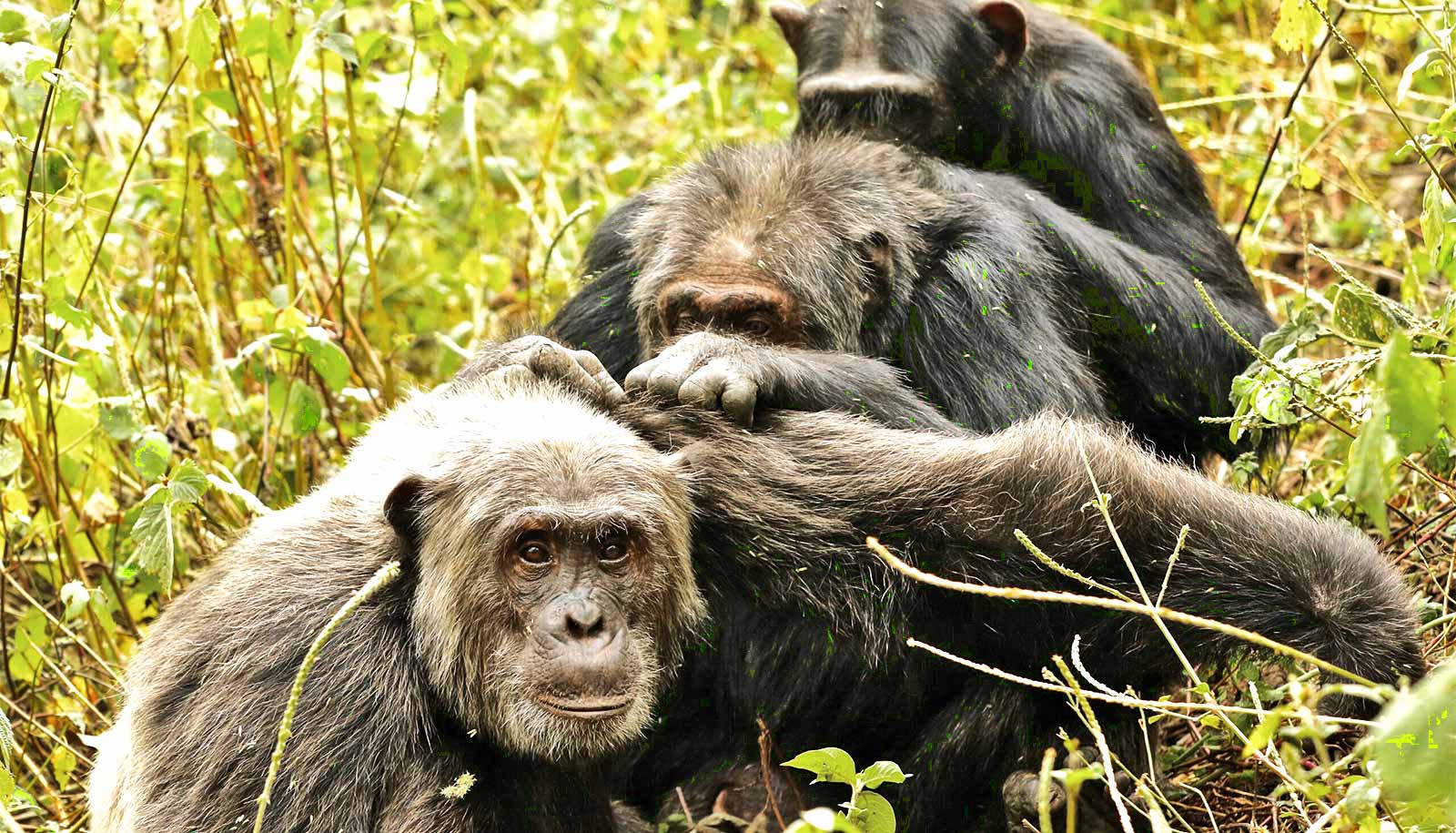Chimpanzee culture is more similar to human culture than often assumed, new research suggests.
Chimpanzees don’t automatically know what to do when they come across nuts and stones. Researchers have now used field experiments to show that chimpanzees don’t simply invent nut cracking with tools, but need to learn such complex cultural behaviors from others.
Humans have a complex culture that enables them to copy behaviors from others. As such, human culture is cumulative, since skills and technologies accumulate over generations and become increasingly efficient or complex.
According to the zone of latent solutions hypothesis in anthropology, chimpanzees do not learn in this way, but can reinvent cultural behaviors individually.
Kathelijne Koops, a professor in the anthropology department at the University of Zurich, has now carried out novel field experiments in the Nimba Mountains of Guinea to show that this may not be the case.
The primatologist investigated whether wild chimpanzees can in fact invent a complex behavior like nut cracking independently.
The chimpanzees were presented with a series of four experiments. First, the chimps were presented with oil palm nuts and stones. Next, the researches added a palm fruit to the experimental setup. In the third experiment, the nuts were cracked open and placed on top of the stones. And finally, the chimps were presented with another, easier-to-crack species of nuts (Coula) together with stones.
The chimpanzees visited the nut cracking experiments and explored the nuts and stones, yet they did not crack any nuts, even after more than a year of exposure to the materials. A total of 35 chimpanzee parties (or sub-groups) visited the experiments, of which 11 parties closely investigated the experimental items. The chimpanzees were more likely to explore the experiments when visiting in bigger parties. Only one female chimpanzee was observed eating from the palm fruit, but on no occasion did the chimpanzees crack or eat either oil palm or Coula nuts.
“Our findings suggest that chimpanzees acquire cultural behaviors more like humans and do not simply invent a complex tool use behavior like nut cracking on their own,” says Koops.
“Our findings on wild chimpanzees, our closest living relatives, help to shed light on what it is (and isn’t!) that makes human culture unique. Specifically, they suggest greater continuity between chimpanzee and human cultural evolution than is normally assumed and that the human capacity for cumulative culture may have a shared evolutionary origin with chimpanzees.”
The research appears in Nature Human Behaviour.
Source: University of Zurich



